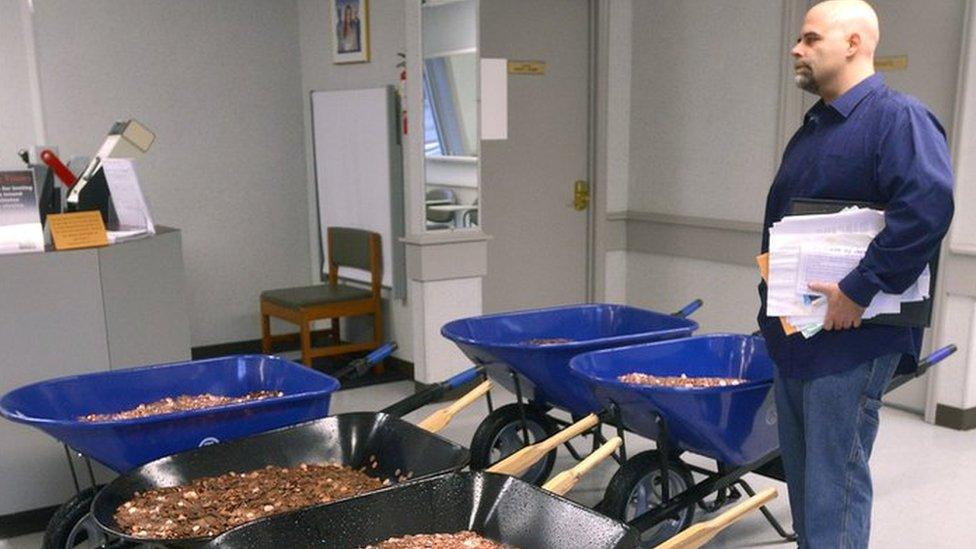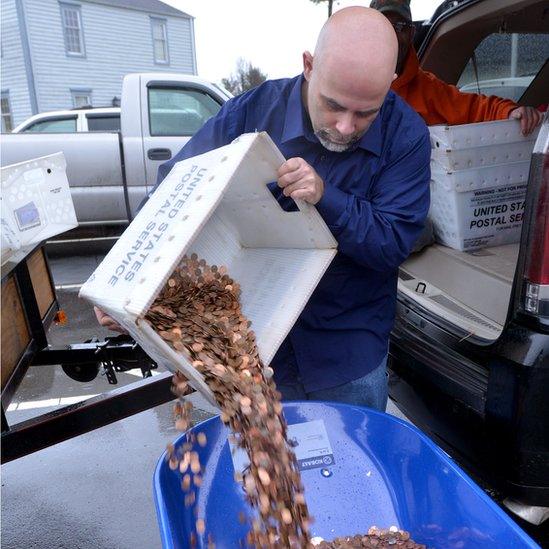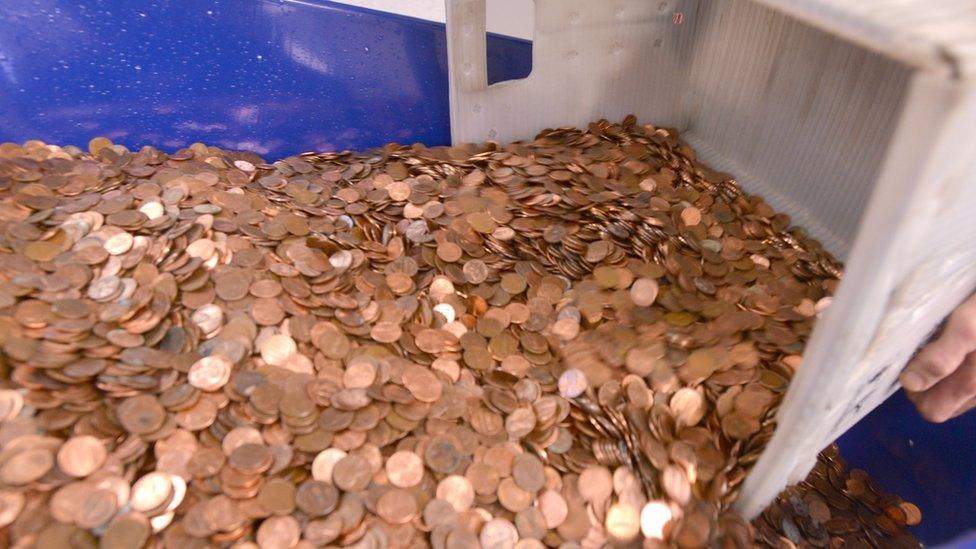US man pays tax bill using five wheelbarrows of coins
- Published

Nick Stafford purchased five wheel barrows to transport his tax payment
A US businessman in dispute with the Department of Motor Vehicles (DMV) has paid his $3,000 tax bill using five wheelbarrows containing 300,000 coins.
Nick Stafford from Cedar Bluff, Virginia, delivered so many coins that the DMV's automated counting machines could not cope with the volume.
His delivery follows a row he had with the Virginia DMV branch over contacting its staff to make tax inquiries.
It took staff at least seven hours to count the coins, working until late.
They finally finished the task early on Thursday morning.

Mr Stafford collected about 300,000 coins
Mr Stafford told the BBC that he made his protest because he wanted government departments to be more responsive to public inquiries.
"It shouldn't matter if you pay $300 per year in income taxes or pay $300,000 per year in income taxes like myself, because the backbone of a free democracy/republic begins with government transparency, period," he said.
Mr Stafford explains on his company's website, external that his dispute with the DMV arose because the department would not give him direct phone numbers of who to contact in order to register three vehicles and pay the sales tax - bearing in mind he owns three houses in different locations.
He filed a Freedom of Information request to be given a direct number, The Bristol Herald Courier, external reported, and was eventually given a number he could ring. But when he did so, he was informed that it was not supposed to be used to answer the public's inquiries.
Mr Stafford then demanded to know the direct numbers of nine other tax offices, even though the DMV by this time had answered his initial query. When that was refused he went to court to argue his case.

Nick Stafford's coin payment
Required five wheelbarrows, costing about $400
Required 11 people who were hired to break open the paper rolls of the coins, taking four hours
Weighed 1,600lb (726kg), heavier than a mature cow
Took at least seven hours to be counted
Sources:The Bristol Herald Courier/Nick Stafford company website

Earlier this week a judge dismissed the three law suits he filed, refusing his request for the DMV and its employees to be fined. But legal representatives of the state did hand over to him the phone numbers he requested - most of which he has now posted prominently on his website.
Mr Stafford says the DMV had to accept his unusual form of payment because the US Coinage Act of 1965 says that coins are "legal tender for all debts, public charges, taxes and dues".

Counting the coins was too much for the DMV's automated machines